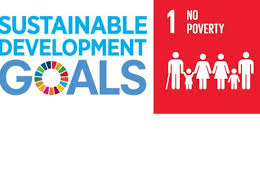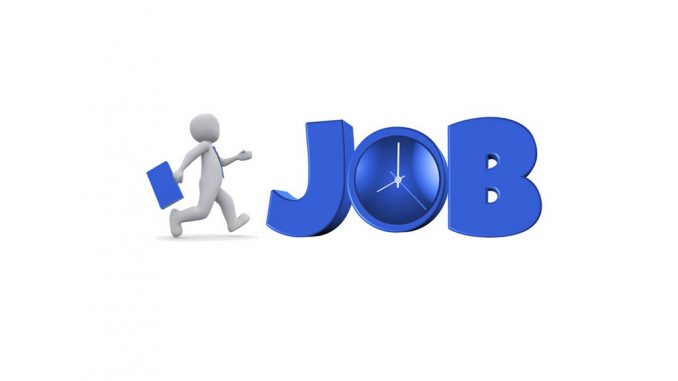Water, Sanitation and Hygiene are indispensible in ensuring good health and sustainable development. The UN initiative in promoting these life- essentials is code – named WASH (Water Sanitation and Hygiene). The importance of the WASH programme in promoting sustainable development is explained by its unfading relevance in global blue prints for development. Under the MDGs goal 7 (Ensure Environmental Sustainability) issues about water, sanitation and hygiene were given full coverage not only for their benefits to humans, but also their importance in preserving the physical environment and the ecosystem for future generations. More prominently under the SDGs, goal 6 enjoins all development partners to ensure availability and
sustainable management of water and sanitation for all. Africa’s buy –in to WASH can be deciphered in the eThekwini Declaration of 2008. That declaration championed by 32 African countries in pursuit of MDG 7 suffices under SDG 6. However, while the WASH programme is been pursued vigorously in rural communities, some towns and cities are yet to ‘WASH – up’. Lagos, the commercial nerve – centre of Nigeria has self-testifying evidences that the city still needs to’ WASH – up’. Water is still one of the most sought – after commodities in Lagos; sanitation remains a major challenge amidst visible efforts by government to make a difference; while water and sanitation are yet to come up the ladder, hygiene shares their fate.
WATER
Even in upscale and middle – class Lagos neighbourhoods like Gbagada, Magodo, Surulere, Ikeja many residents still rely on the services of the Mai Ruwa (Water vendor using hand – pushed Carts). These vendors supply the water needs of major households in Lagos, from cooking to bathing and washing. The water, sourced from private boreholes, in most cases does not pass for drinking. So after buying from the Mai Ruwa for other household needs for water, Lagos residents would also buy the sachet water or the bottled water for drinking, depending on the strength of their purse. A bag of the sachet water costs between N120 and N150 naira; a pack of bottled water (12 X 50 CL) costs between N400 and N500; while a 25 litre keg from Mai Ruwa costs between N40 and N50. An average Lagos family of 5 would require, at least, 10 kegs of water and 1 bag of sachet water daily. This translates to a budget of N520 daily, N3,640 weekly and N14,560 monthly (using the least prices of the affected products), just to have water whose purity is unfounded. Current economic conditions make this available alternative inaccessible to many, thereby forcing some households to resort to other options like the well- water. Prevailing cases of water – related ailments like Typhoid dot hospital records as a testimony.
SANITATION
Until recently, every first Saturday of the month was observed as sanitation day in Lagos. On such days, between the hours of 7am and 10am, restricted movement (except for people on essential duties – Doctors, Nurses, etc.) was observed in all parts of Lagos to allow residents clean their environment and surroundings; offices and premises remained under lock and Key. Unlike the suspended Saturday sanitation, the market sanitation on Thursdays is still in force. The Thursday sanitation proscribes trading in Lagos markets until 10am every Thursday. Within the proscribed hours, traders in Lagos markets are expected to embark on environmental sanitation to clear- up the wastes generated from commerce in the preceding days. Even with these efforts, Lagos drains and streets still have their mouths and crevices stuffed with filth and rubbish. The mobile supermarket (trading in traffic on highways) helps Lagos highways share significantly in the filth-spree. Except for the untiring efforts of the State sanitation outfit, LAWMA, the situation would be more deplorable.
Open defecation is prevalent in many parts of Lagos. Drains, Street Lawns, walkways and lonely street corners become repositories for human wastes, in the absence of adequate public toilets. Tyres of parked Vehicles, Walls/Fences, open drains and flower beds help to augment the largely insufficient Urinary facilities. Canals have become public Septic Tanks wherever they could be found in Lagos.
HYGIENE
The hygiene challenges of Lagos are mainly rob – offs from lack of good water and sanitation infrastructure, coupled with poor sanitary regulation and inspection.
With the economic constraints of sourcing for water, popular norms like bathing three times a day become a luxury in some Lagos households, thereby impinging on personal hygiene.
It is a regular sight in Lagos to find food vendors operating on top of a slab placed over an open drain. The drove of flies greeting the suppers and the stench from the blocked drain become added flavours to the unfortunate meals served by these vendors. The source of water used by these vendors is nobody’s headache. Poor hygiene condition of some Abattoirs makes their products unhealthy. In all, food hygiene in Lagos remains a source of worry for healthy living.
WASH – UP LAGOS
There is no end to the sad tales of Water, Sanitation and Hygiene in Lagos. Solo efforts by state-owned agencies like LAWMA, appear inadequate. With a population cover of more than 1 KAI Brigade officer to 100 Lagosians, efforts by the state sponsored KAI (Kick Against Indiscipline) Brigade is evidently ineffective. There is therefore an urgent need for a concerted effort to wash – up Lagos (and indeed other cities in Nigeria).
The approach is for public policy makers in Nigeria to rethink, rejig and re-align the WASH project to consider the urban centres, without losing speed in the rural areas. A more holistic policy drive would ensure that issues of water, sanitation and hygiene are given a nation – wide attention. Spirited efforts by state governments to promote sanitation and hygiene in large urban centres like Lagos should be complemented with visible support from the federal government.
Government efforts, alone, would be insufficient in this wash – up exercise; corporate might is needful. The 2016 state of CSR in Nigeria released by ThistlePraxis, revealed heavy concentration of CSR activities in the areas of education, health and youth development. However, without water, sanitation and hygiene, effective education may be impaired (case: Queens College, Lagos); impairments in education would also affect the effectiveness of youth development projects. Without appropriate corporate social investments to promote access to clean water, effective public sanitation and improved hygiene, CSR interventions in health would remain reactionary and eventually less – effective. Should anyone ask why the WASH program (either by government or by corporates) should not remain an exclusive preserve of rural communities, the answer is simple: the Rich also cry.
How are your organisation’s CSR activities helping to WASH – up Lagos and other cities in Nigeria? The microphone is yours in the Arena: thecsrarena@gmail.com

The CSR Arena is a CSR advocacy and sustainability-reporting-analysis champion. We encourage and celebrate effective CSR and positive social impact by responsible corporate citizens; we celebrate international best practices in sustainability reporting across different economic divides. Our goal is to realize the dream of development scholars that, ‘corporates, more than governments, would bring about the much needed sustainable development across the globe. We partner with FBOs, NGOs, CBOs, governments and corporates to spread the message of sustainable development and corporate sustainability. Our platforms bear tales of good corporate citizenship – grab the microphone that you may be heard. Contact: news@thecsrarena.com


